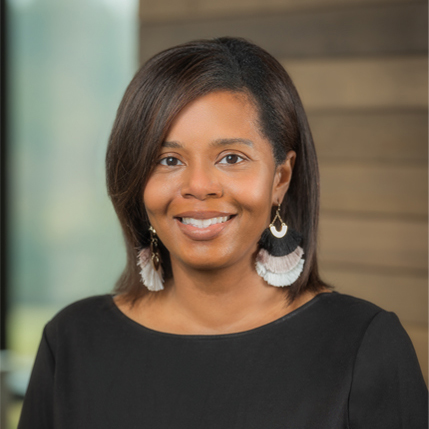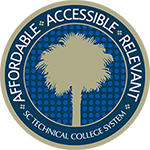As a Community Outreach Specialist, Tarsha Brown loves meeting students in their schools and communities and helping them with the enrollment process. She finds fulfillment in helping students who face adversity – whether those are first-generation students, students who come from poverty, or those who are otherwise unfamiliar with the college enrollment process. “There’s something special about seeing students who didn’t think they could succeed, do it,” she shares. “And to see them walk across the stage at graduation is especially rewarding.”
How did you first learn about CCLA, and why were you interested in pursuing it?
I always wanted to go back to school, but my priority was making sure my daughters got their degrees. I often wondered, When will it be my time? But with one daughter just graduating from high school and getting ready to go to USC herself, there was no way financially that I could enroll too.
But then I received an email from my vice president about the CCLA program saying that I had been unanimously voted to participate in the cohort and that my education would be paid for. I was so excited! It was finally my time.
And even though you graduated from the cohort in May of 2023, it continues to be your time, as you have used the cohort as a stepping-stone to an advanced degree.
Yes! I am excited to continue my education. But there are three things that really, really, really make me appreciate the cohort:
- Now I have to pay for my education; with the cohort, those expenses were covered.
- Now I have to drive to Columbia from Greenville every week; the cohort was virtual, which was more convenient.
- And now I have to use my personal time; the cohort allowed me to use my work time to develop myself and grow professionally.
Those benefits of the cohort really made a tremendous difference.
How has your CCLA participation made you a better leader?
Learning the different styles of leadership gave me the opportunity to think about what type of leader I want to be. I want to lead by example. If I ask someone to do something, I need to be able to do that as well. But I also don’t want to be the leader who ignores issues that need to be addressed. I want to be able to have tough conversations.
Participation in the cohort helped me evaluate how I will respond to difficult situations. Will I get upset? Will I observe a little longer to see if the situation will work itself out? Do I need to confront the person or situation immediately? I have a greater awareness for the unique dynamics of each situation so that I respond appropriately and effectively.
What advice would you give to future cohort members?
Utilize the resources on your college campus. If there’s a book you need, sure – you may get it from the USC library. But check to see if the library on your campus has it first. If you have a question about how to correctly cite a source using APA format, utilize your college’s academic tutoring center. And reach out to people on your campus who have participated in past CCLA cohorts. They may be able to provide assistance as well.


